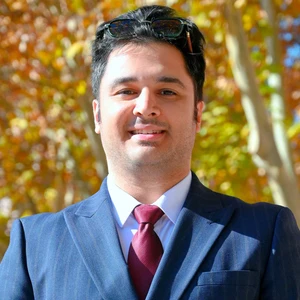Publications
Armenia’s Foreign Policy after the Second Nagorno-Karabakh War
 By Benyamin POGHOSYAN, PhD, Senior Research Fellow at the APRI Armenia
By Benyamin POGHOSYAN, PhD, Senior Research Fellow at the APRI Armenia
Profound shifts in the geopolitical dynamics of the South Caucasus, driven by the Second Nagorno-Karabakh War and the onset of the Russia-Ukraine War, have shaped the Armenian government’s pursuit of foreign policy diversification. This report analyses key developments in and around Armenian foreign policy from November 2020—the end of the Second Nagorno-Karabakh War—through March 2025. The 2020 Nagorno-Karabakh War, the onset of the Russia-Ukraine War in 2022, and Azerbaijan’s military takeover of Nagorno-Karabakh in 2023 disrupted the regional status quo. In light of the repeated incursions by Azerbaijan and in the absence of a tangible response from Russia and the Collective Security Treaty Organization, the Armenian government intensified its foreign policy diversification efforts. It sought to deepen diplomatic and military cooperation with new and existing partners, notably India, France, the EU, and the US, while opening multiple embassies worldwide.
READ MORE
Publications
The Organization of Turkic States Is Emerging as a Key Geopolitical Actor in Eurasia
 By Vasif HUSEYNOV, PhD, Head of Department, AIR Center, Adjunct Lecturer, ADA and Khazar Universities, Baku
By Vasif HUSEYNOV, PhD, Head of Department, AIR Center, Adjunct Lecturer, ADA and Khazar Universities, Baku
The Informal Summit of the Organization of Turkic States (OTS), held on May 20-21, 2025, in Budapest, Hungary, marked a significant milestone in the organisation’s growing geopolitical influence. Hosted by Hungarian Prime Minister Viktor Orbán, the summit brought together leaders from Azerbaijan, Kazakhstan, Kyrgyzstan, Türkiye, and Uzbekistan, alongside observer states Hungary, Turkmenistan, and the Turkish Republic of Northern Cyprus. This gathering, the first OTS summit hosted by an observer state, underscored Hungary’s role as a bridge between the Turkic world and Europe, reflecting the theme “Meeting Point of East and West”. The summit culminated in the adoption of the Budapest Declaration, a strategic roadmap that reaffirmed the OTS’s commitment to unity, cooperation, and addressing global challenges. This event highlighted the organisation’s evolution into a formidable geopolitical player, particularly for Central Asian states and Azerbaijan, as they navigate complex regional dynamics to safeguard their independence and counter threats to their security. READ MORE
Publications
Azerbaijan and Vietnam Forge Strategic Ties  By Vusal GULIYEV, Policy Advisor at the Center of Analysis of International Relations and Head of Shanghai Office at AZEGLOB Consulting Group
By Vusal GULIYEV, Policy Advisor at the Center of Analysis of International Relations and Head of Shanghai Office at AZEGLOB Consulting Group
Azerbaijan and Vietnam formally elevated their 33-year diplomatic relationship to a strategic partnership during General Secretary of the Communist Party of Vietnam Tô Lâm’s visit to Baku from May 7 to 8. After signing a joint declaration to form a strategic alliance, Azerbaijani President Ilham Aliyev and Tô Lâm established numerous cooperation agreements across various sectors, including energy, defence, and culture. Aliyev described the pact as a “very serious political document” that upgrades relations, pledging to turn the signed agreements into concrete projects. Tô Lâm likewise hailed the visit as a new era in the history of relations between the two countries, noting that deepened ties would leverage each side’s strengths for mutual development. This first visit by a Vietnamese Communist Party leader to Azerbaijan underscored Hanoi’s commitment to broader engagement with the Caucasus. READ MORE